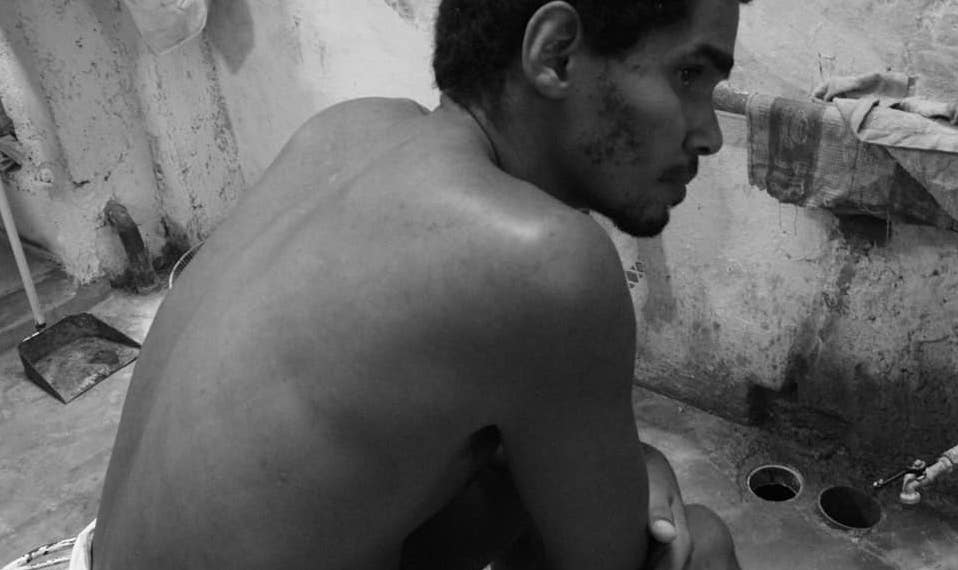The peaceful protest by activists at the headquarters of the San Isidro Movement (MSI), in Havana represented an opportunity for the Cuban State to inaugurate its fifth seat on the UN Human Rights Council by showing at least a modicum of commitment to said rights, especially after all the criticism that its candidacy and subsequent election drew. The Government could have urged the court that tried rapper Denis Solís in what was a summary trial to review the case and order new proceedings with all due legal guarantees for the accused.
Instead, it decided to leave hunger strikers with two options: give in or die. With the passing of the days and the persistence of the strikers, the last option began to become ever more likely. Apparently the regime decided that it was preferable to remove them by force than to allow them to starve as the world looked on.
By forcibly entering the headquarters of the San Isidro Movement, where no illegal or hidden activity was being perpetrated, the State violated its commitment to respect resolutions 21/16 of September 27, 2012; 10/22 of March 21, 2013, and 5/24 of September 26, 2013. These resolutions, approved by the Human Rights Council, refer to respect for right to freedom of peaceful assembly, association and demonstration.
These instruments remind states of their obligation to respect and protect the rights of all persons to freedom of peaceful assembly and association by any means, including those who embrace minority or dissident positions or beliefs, human rights defenders, union members, and even migrants. It also instructs states to adopt all necessary measures to ensure that any restrictions on the free exercise of the right to freedom of peaceful assembly and association comply with their obligations under international human rights law.
The resolutions also urge states to promote a safe and conducive environment so that individuals and groups can exercise their rights to peaceful assembly, expression and association, also ensuring that their national laws and procedures related to these rights are in accordance with their obligations and international commitments related to human rights, as well as its principles.
By cutting off the Internet connection, at least in the capital, the State not only violated the rights of MSI members to seek and receive information, but of all the people. This right is enshrined in the American Declaration of the Rights and Duties of Man, the American Convention on Human Rights, the Inter-American Democratic Charter, as well as the Universal Declaration of Human Rights and the International Covenant on Civil and Political Rights (signed by La Havana in 2008, but not ratified).
By accusing Denis Solís in its press, sentenced to eight months in prison after a summary trial for trumped-up contempt chrages after being "associated with terrorist groups" from the United States, the Cuban State violated his right to his good name, protected by the Constitution; and violated Resolution 68/181 approved by the UN General Assembly in December 2013, on the protection of human rights defenders.
Said resolution expresses the Assembly's concern that "in some cases, legislation and other national measures on security and the fight against terrorism have been misused against human rights defenders (...) or have obstructed their work and endangered their security in contravention of international law."
By perpetrating verbal and physical attacks against those who sought to reach the headquarters of the San Isidro Movement, to provide the strikers with some sort of support or assistance, the Cuban State also failed to fulfill its obligation to respect, guarantee and protect citizens' human rights.
The aforementioned Resolution 68/181 warns in another paragraph about "harassment and verbal aggression, and attacks on people's reputations, both online and through traditional means, by agents of the state, including officials in charge of law enforcement and security forces; and non-state figures, such as those related to the family and the community, in the public and private spheres," suffered by human rights defenders and women.
Far from seeking a solution to the crisis generated by the imprisonment of Denis Solís, based on a fabricated crime, the Cuban state resorted to discrediting the rapper and his fellow MSI members, and promoting their public rejection and disparagement.
This attitude constitutes yet another violation, this time of UN Resolution 53/243 of 1999, relative to the Declaration and Program of Action on a Culture of Peace, whose Article 1 emphasises "respect for life, an end to violence, and the promotion and practice of non-violence through education, dialogue and cooperation. Full respect for and the promotion of all human rights and fundamental freedoms (…) and adherence to the principles of freedom, justice, democracy, tolerance, solidarity, cooperation, pluralism, cultural diversity, dialogue and understanding at all levels of society and between nations."
If for the state this has been a missed opportunity to demonstrate its political willingness to respect the human rights of Cuban citizens, even those who disagree with it, it is also an opportunity for the UN to rethink the way in which the members of its Human Rights Council are elected.
